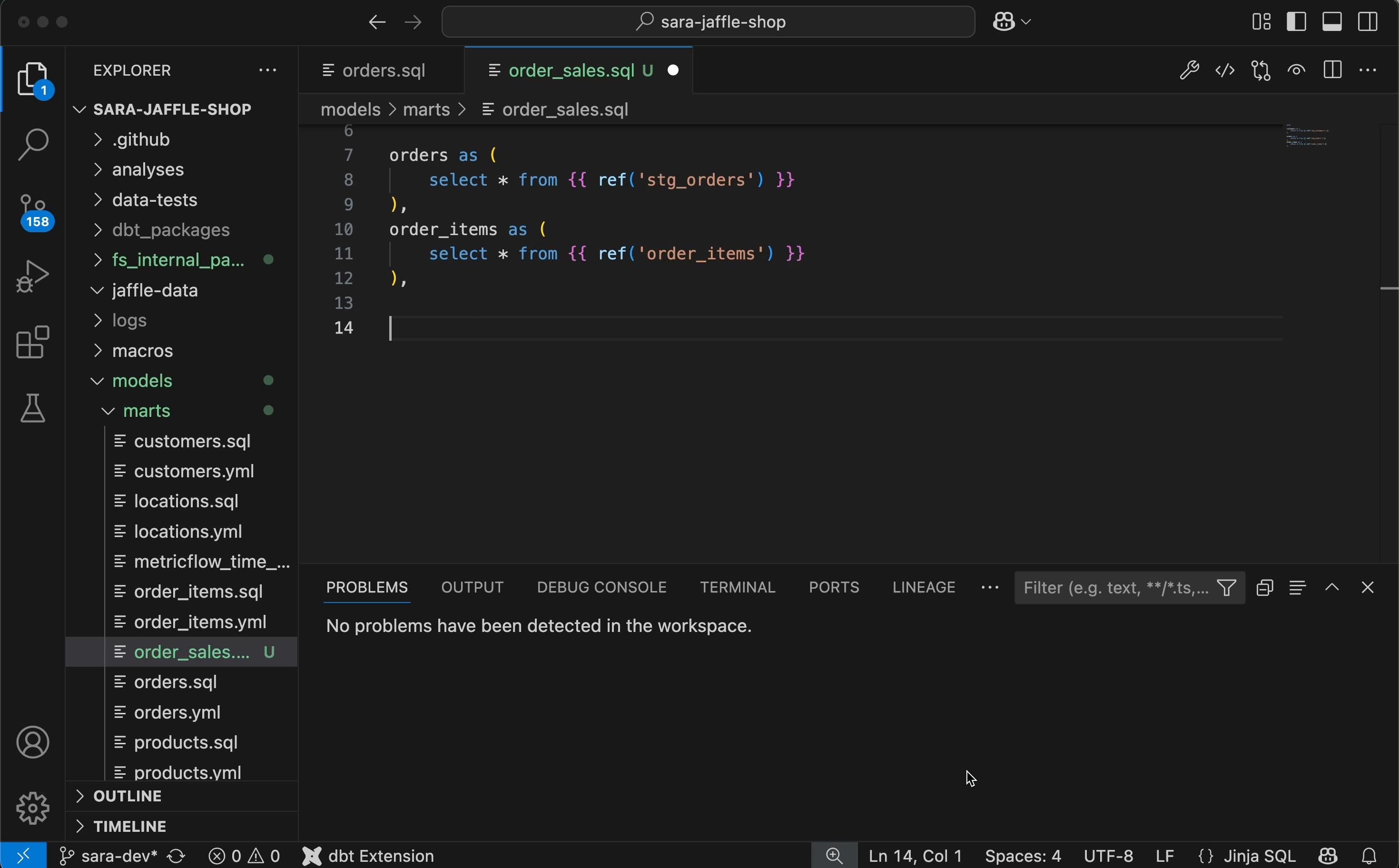Get to know the new dbt Fusion engine and VS Code Extension
Today, at our annual dbt Launch Showcase, we announced the public beta release of the all-new dbt Fusion engine, available to eligible Snowflake projects. We also released the official dbt VS Code Extension in public beta.
Together, these represent a huge leap forward for everyone building with dbt. Fusion isn’t just another feature. It’s the foundation for a new era of analytics engineering, ushering in a whole new dbt experience that is far faster, more intelligent, and more cost-efficient than ever before.
Why now?
Since its launch in 2016, dbt Core has revolutionized the way data teams approach data transformation, bringing software engineering principles to analytics workflows for the first time.
But the world has changed in the ensuing nine (!) years. The modern data stack is no longer novel, storage and compute are cheaper than ever, and AI is reshaping how we interact with data. Meanwhile, even as analytics has become a team sport—with developers, analysts, and business stakeholders working more closely than ever—the bar for what’s possible in a first-class data development experience has continued to rise.
dbt is ready for an update. That’s why we we acquired SDF Labs earlier this year, and why we’ve incorporated SDF’s technology into the heart of dbt to create the new dbt Fusion engine.
Fusion: A new engine for a new era
Fusion is a fundamental shift in how dbt understands and executes your analytics code. It introduces three key new technological breakthroughs to dbt:
Lightning-fast performance
Performance isn’t just a nice-to-have. It’s the backbone of rapid, high-trust data development. Fusion is built in Rust, a systems-level language known for performance, and optimized to parse even the largest dbt projects 30x faster than dbt Core. This allows developers to iterate rapidly, stay in flow longer, and ultimately, ship high-quality data products faster.

Native SQL comprehension
Fusion represents a fundamental change to how dbt operates: dbt is no longer just passing along your code to the data warehouse. Now, dbt is also able to understand that code.
With this understanding, dbt can emulate your cloud data warehouse locally and reason about your code with the intelligence of a modern compiler. It’s a major shift that enables powerful new capabilities—like validating your code in real time, without ever needing to hit the warehouse.
State-awareness
Fusion introduces a first-of-its-kind understanding of your dbt project’s state: both what exists in your codebase, and what’s already been materialized in your warehouse. This means that dbt can now dynamically make determinations about, for example, which models truly need to be rebuilt, as opposed to which ones have already been built very recently. This results in higher velocity pipelines and built-in cost savings.
What this means for data teams
The above three technological breakthroughs translate directly into tangible benefits for your organization: faster development cycles, lower warehouse spend, and stronger confidence in the quality and governance of your data products.
Here’s what that looks like in practice:
A hyper-responsive development experience
Fusion is designed to allow developers to move faster, and stay in flow for longer. With SQL comprehension built into the engine, you get real-time, context-aware assistance as you write code. IntelliSense offers smart autocompletion for models, columns, macros, and functions. Hover previews surface column types and schema details. Need to rename a model or column? Automatic refactoring updates references across your entire project instantly. With go-to-definition and inline CTE previews, navigating large projects is seamless and debugging is faster than ever.
The data team at Bilt is very excited to roll out the new dbt Fusion engine. The improvements it brings will address many of the pain-points we currently face in our development cycle and we believe it will provide a step function increase in our velocity.
James Dorado VP Data Analytics @Bilt Rewards
Built-in cost savings
Fusion understands your project’s lineage and database state in real-time. This unlocks state-aware orchestration: only run models when upstream data has changed. No more wasteful rebuilds.
We expect customers to see a ~10% reduction in warehouse spend driven by this, with even greater savings expected as new state-aware capabilities are launched in the coming months.

We anticipate the dbt Fusion engine will mark a new chapter for our data team — one where speed and efficiency are baked into every part of the analytics lifecycle.”
Matt Karan Senior Data Engineer @Obie Insurance
Improved lineage and data governance
Fusion’s native SQL comprehension will unlock true, precise column-level lineage. This enhances impact analysis, helps reduce risk of compliance issues, and lays the groundwork for built-in PII classification and policy enforcement (coming soon). The kind of robust data governance this will unlock is particularly pivotal to a safe, effective AI strategy.
Available now: The official dbt VS Code Extension
The dbt Fusion engine will power every development experience in the dbt platform. That said, we know many of you do your best work locally in the familiar confines of VS Code (or VS Code based IDEs such as Cursor.) That’s why we’re excited to launch an official dbt VS Code Extension (now in public beta)—built by dbt Labs, and optimized for dbt.
The dbt VS Code Extension brings all the development experience enhancements of Fusion directly to VS Code. It’s the only way to unleash the full power of the dbt Fusion engine while developing locally.
“The Fusion engine with VS Code Extension is how folks will want to develop with dbt moving forward. This is awesome. It’s the experience we’ve all been waiting for.”
Bruno Souza de Lima Lead Data Engineer @pHData
Now, regardless of how your team chooses to contribute to the analytics loop in dbt—whether it’s the dbt Studio IDE, dbt Canvas, dbt Insights, or locally with the new VS Code Extension—they can do so on one powerful, shared engine: Fusion.
Note that to use the VS Code Extension, your project must be running on the Fusion engine. The extension does not support dbt Core, as the key developer experience enhancements it’s designed to enable rely on the technological foundations of the new engine.
What’s available today?
✅ Fusion engine: Available in public beta for eligible projects on Snowflake (with support for more projects and data platforms coming soon). If your projects are eligible, you'll soon see a notification when you log in to dbt.
✅ Official dbt VS Code Extension: Now available via the VS Code Marketplace. Requires use of the dbt Fusion engine, although you do not need to be a customer of the commercial dbt platform.
✅ State-aware orchestration: Unlock ~10% warehouse cost savings with smarter, more efficient job runs. Automatically enabled for customers on Enterprise plans running on the dbt Fusion engine.
How to get started
If your dbt project is eligible and you’re a dbt customer, you’ll soon see a notification in the dbt UI to begin the process of migrating to Fusion.
If your project is not yet eligible, fret not: you can follow these steps to get prepared in the meantime. We’re rapidly expanding support, and it shouldn’t be long before your project can tap into the Fusion engine.
If you’d like to begin trying Fusion immediately, or if you’re not a customer, you can install dbt Fusion locally and use the VS Code Extension today. You can also explore our new Fusion Quickstart to experiment with a sample project running on Fusion.
What’s next?
Fusion is the future, and this is just the beginning. Soon, you’ll see:
- Support for more projects and more data platforms. Our team is working diligently to make Fusion available to more teams and users as a top priority in our approach to GA. Hang on tight.
- Even smarter CI/CD with column-aware change detection. Expect more cost savings in the near future, powered by the Fusion engine’s state-awareness.
- Built-in data governance with support for tagging of PII/PHI and enforcement of data policies.
But that's still just scratching the surface. The longer-term implications of the dbt Fusion engine across AI and data infrastructure go far beyond these capabilities. Read Tristan’s blog post on where we’re headed with the new dbt Fusion engine for more.
VS Code Extension
The free dbt VS Code extension is the best way to develop locally in dbt.








